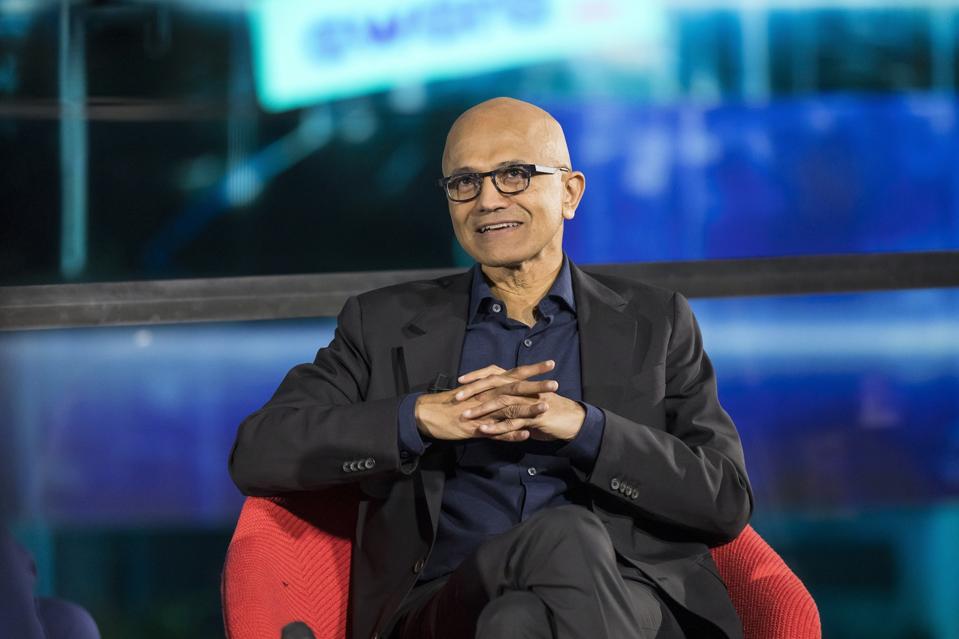Even people who profess not to have any interest in business love a good start-up. They are engaged by the idea of the scrappy underdog taking on the corporate giant. Think Richard Branson’s Virgin Atlantic against British Airways or, more recently, all those men’s shaving businesses challenging Gillette. But the distinction between these companies is often illusory. Virgin Atlantic is now an established airline in its own right and BA has had its struggles, while one of those upstart shaving brands, Harry’s, was bought by the owner of Wilkinson Sword and its rival, Dollar Shave Club, was acquired by Unilever. Apple was not so long ago the cool alternative to the likes of Hewlett-Packard and Microsoft but is now one of the richest companies there has ever been and back in the mid-1990s Jeff Bezos was selling books from his garage and but his creation, Amazon, is now seen as the epitome of Big Tech.
Academics and other commentators have pondered long and hard about what it is that makes one start-up fail and another one go on to become an industrial behemoth. Certainly, luck plays a part. Business founders I have interviewed over the years have confessed that being in the right place at the right time or even winning a prize or a significant contract just before their money ran out were key to their survival and subsequent success. The talent and determination of the founders are also obviously important — just as they are in pretty much any field of endeavour.
However, a book out this week suggests that it is not just the quality of the founder and his or her idea that matter. It is also vital that founders surround themselves with good people and set up at a comparatively early stage systems that will enable their businesses to evolve reasonably smoothly from fledgling enterprises into fully developed companies.
Drawing on his lengthy experience as a leadership coach, author Simon Court argues in his book Founder’s Legacy that it is leadership that sets apart the winning start-ups from the losers. In particular, he says that successful founders are those that realise that all will not be straightforward and learn from their experience. “Learning to lead is about personal growth and becoming the most valuable version of yourself you can be. If you work on yourself, you can build an extremely valuable business. If you don’t, you are left with hope, luck and grind. It will exhaust you.”
To this end, he urges leaders of growing companies to — no matter how busy they think they are and how obliged they feel to spend every working hour on the business — find time for their own personal development.
A key element in this is the notion of the “mindset”, popularized by the Stanford University professor Carol Dweck in her book of that name. Now, Mary Murphy, who was mentored by Dweck, has taken the idea of the “growth mindset” further and, in a recently published book, Cultures of Growth, shown how it is not confined to individuals but can be used to help any group or team reach levels they would not previously have done. Whereas organizations that have a “fixed mindset,” based on the idea that talent and intelligence are predetermined, create what she calls “Cultures of Genius,” those with a growth mindset — where there is a belief that talent and intelligence can be nurtured — create “Cultures of Growth.” One of the best-known examples of this being put into practice is Microsoft under Satya Nadella, who became CEO in 2014 with an explicit determination to shift the company into a growth mindset culture. But Murphy stresses that the approach does not just apply to large corporations. She has said that early-stage enterprises with cultures of growth are more likely to meet and exceed fund-raising goals and claims that such cultures can “also boost outcomes in schools, nonprofits, sports teams … essentially anywhere there’s two or more people working together.” Indeed, one of the players involved in the recent turnaround in the England men’s rugby union team, covered in a previous post, has openly talked about changed mindsets.
Murphy’s insistence of the wide application of her thinking perhaps demonstrates that, particularly these days, there is not really so much difference as people think between how large organizations and smaller ones are run. Court talks about the need for growing businesses to have a sense of purpose and to espouse values. A few years ago that was a differentiator. But these days, thanks to public expectations and the need to comply with environmental, social and governance (ESG) standards, all businesses are at least paying lip service to such policies.
So the lessons that Court sets out to help leaders of start-ups build lasting businesses are not limited to such enterprises in much the same way that leaders of large corporations (the successful ones at least) have come to recognise that the organizations for which they are responsible have to be run a bit more like their smaller counterparts than used to be the case.
Perhaps we should stop thinking so much about the size of an enterprise and more about whether it is a good or a bad business.

